
If you're reading this, chances are you're one of those "hardgainers" - the skinny guys who can eat whatever they want without gaining a pound.
You've been hitting the gym, lifting heavy, but still, your muscles are playing hide and seek.
Frustrating, isn't it?
Well, let me tell you a secret - it's not just about the weights.
It's about what's on your plate.
In this comprehensive guide to nutrition for muscle building, we'll cover everything from how much you should be eating to what the best foods are to consume.
Let's get into it...
The best nutrition plan for skinny guys to gain muscles involves eating a calorie-dense diet with a balanced macronutrient ratio, focusing on high-protein foods, complex carbohydrates, and healthy fats.
Pair this with a consistent strength training program, and you'll be on your way to gainsville.
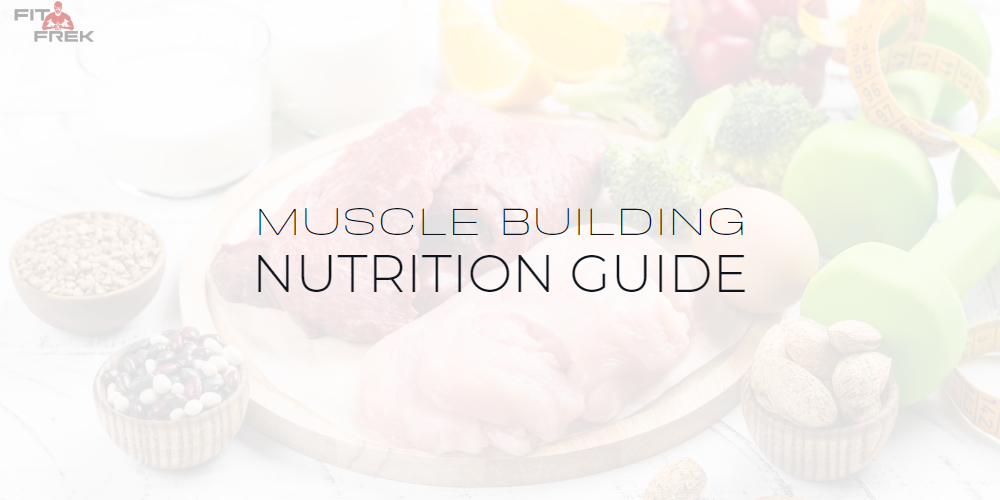
First things first, let's talk about body types.
If you're a skinny guy struggling to pack on muscle, you're likely an ectomorph.
Ectomorphs are typically tall, thin, and have a fast metabolism.
Sounds like a dream, right?
Well, not if you're trying to build muscle.
Ectomorphs find it hard to gain weight and muscle due to their high metabolic rate.
Your body burns calories faster than you can consume them, making muscle gain a challenging task.
But don't worry, it's not impossible.
With the right nutrition plan, you can turn your ectomorph disadvantage into an advantage.
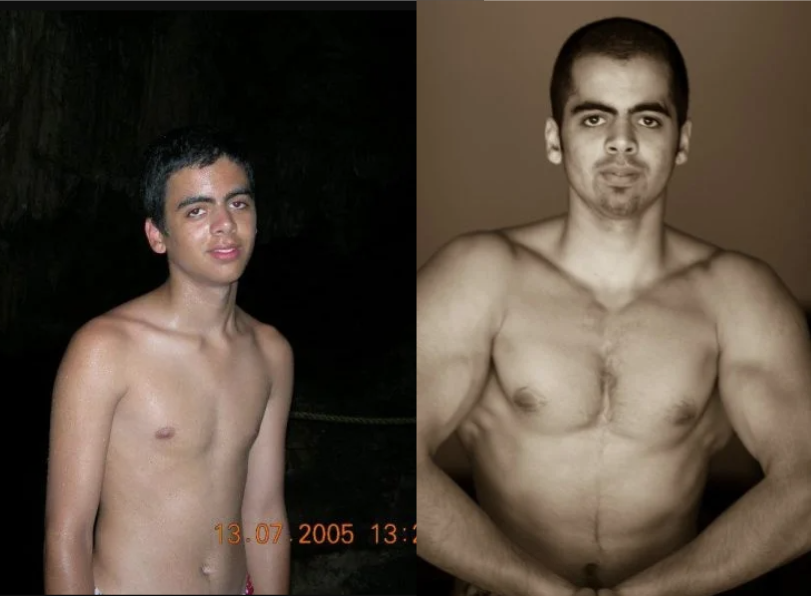
When I say, I know what the struggle is like, I really do know what it's like. See my transformation.
When it comes to body types, we generally categorize ourselves into one of three groups: ectomorph, mesomorph, and endomorph.
Ectomorphs are typically characterized by a lean and long physique. They have a fast metabolism, which makes gaining weight and muscle mass a challenge.
For hardgainers, who are often ectomorphs, a higher caloric intake, coupled with strength training, can help in gaining muscle mass.
Mesomorphs are the middle ground between ectomorphs and endomorphs. They have a naturally athletic build, with a high proportion of lean muscle mass.
Mesomorphs can gain and lose weight relatively easily, and they respond well to both strength and cardio training.
Endomorphs have a larger, rounder physique with a tendency to store more fat. They may struggle with losing weight but can gain muscle mass relatively easily.
For endomorphs, a balanced diet with a focus on lean proteins and complex carbohydrates, along with regular exercise, can help manage weight and promote muscle growth.
Remember, these body types are not strict classifications. Most people are a mix of two body types, and your body can change over time due to lifestyle, diet, and exercise.
Understanding your body type can help you make more informed decisions about your diet and exercise plan, but it's not a definitive guide. It's always best to listen to your body and adjust your nutrition and training to suit your individual needs.
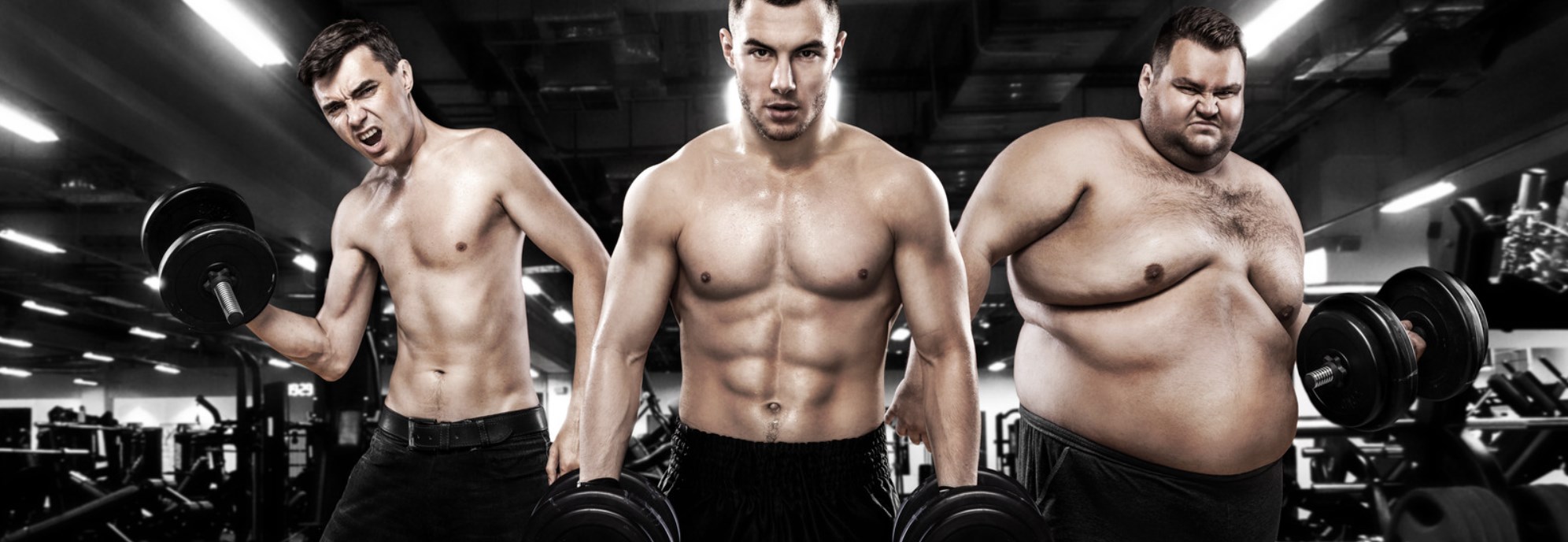
To gain weight and build muscle, you need to consume more calories than your body burns - a state known as a caloric surplus.
Think of it as fuel for your muscle-building journey.
Without enough fuel, your body won't have the energy it needs to build and repair muscle tissue, leaving you stuck in your skinny status quo.
But how much of a surplus should you aim for?
A good starting point is to add an extra 500 calories to your daily caloric needs.
This should lead to a steady weight gain of around 0.5-1 pound per week, most of which will be muscle if you're lifting weights.
Not sure how many calories you need? Check out our calorie calculator to get a personalized estimate.
Bulking is the process of eating more calories than your body needs in a bid to gain weight, specifically muscle mass. Here are some steps to follow:
Calculate your daily caloric needs: Use a calorie calculator to determine how many calories you need to maintain your current weight.
Add a surplus: You'll need to eat more than this number to gain weight. A good starting point is to add 500 calories to your daily needs.
Prioritize protein: Aim for at least 1.6g per kilogram of body weight daily. This will support muscle growth.
Don't forget carbs and fats: Carbohydrates provide energy for your workouts, while fats are essential for hormone production and nutrient absorption.
Lift weights: Combine your diet with a strength training program to ensure the weight you gain is muscle, not fat.
Cutting is the opposite of bulking. It involves eating fewer calories than your body needs to lose weight, primarily fat. Here's how to do it:
Calculate your daily caloric needs: Use a calorie calculator to find your maintenance calories.
Create a deficit: You'll need to eat less than this number to lose weight. A good starting point is to subtract 500 calories from your daily needs.
Prioritize protein: Even when cutting, protein is important. It helps preserve muscle mass while you lose weight.
Incorporate cardio: Cardiovascular exercise can help create a calorie deficit and improve your overall health.
Maintaining is about eating the right amount of calories to sustain your current weight. Here's how:
Calculate your daily caloric needs: You know the drill by now. Use a calorie calculator to find your maintenance calories.
Eat balanced meals: Make sure you're getting a good mix of protein, carbs, and fats in your diet.
Stay active: Regular exercise will help you maintain your muscle mass and overall health.
Clean bulking is about healthily gaining weight.
Instead of eating anything and everything in sight, you focus on nutrient-dense foods. Here's how:
Calculate your daily caloric needs: Find your maintenance calories and add a surplus.
Choose quality foods: Opt for whole grains, lean proteins, fruits, vegetables, and healthy fats.
Monitor your progress: Regularly check your weight and body composition to ensure you're gaining muscle, not fat.
If you're a skinny guy looking to build muscle, here are some steps to follow:
Eat more: You must consume more calories than your body burns. Start with an extra 500 calories per day.
Prioritize protein: Aim for at least 1.6g of protein per kilogram of body weight each day.
Don't skip carbs and fats: Carbs provide energy for your workouts, while fats support hormone production.
Lift weights: Focus on compound exercises that work multiple muscle groups at once.
Be consistent: Building muscle takes time. Stick with your diet and exercise plan, and you'll see results.
Remember, everyone's body responds differently to diet and exercise. It may take some trial and error to find what works best for you. Always listen to your body and adjust your plan as needed.
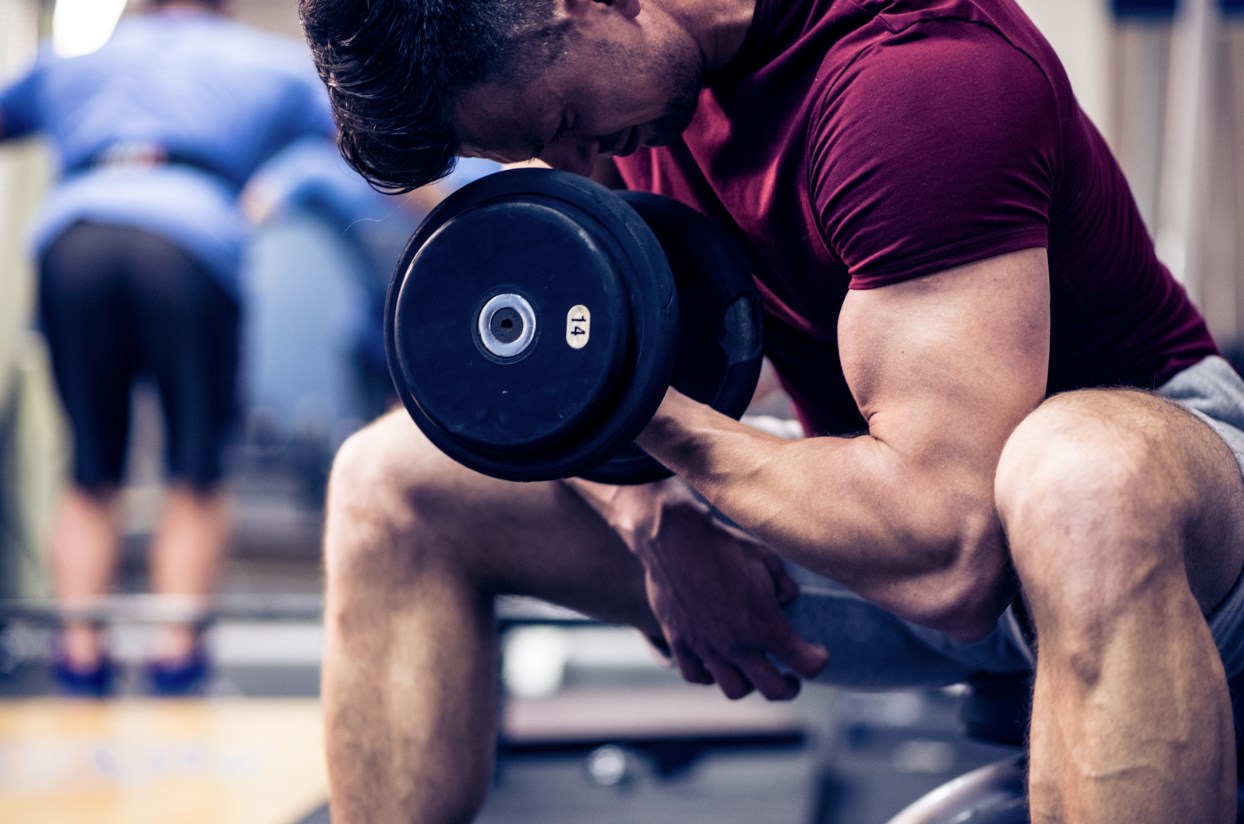
Bulking up without counting calories might sound like a dream, but it's actually quite possible. Here's how you can do it:
Listen to Your Body: Your body knows when it's hungry and when it's full. Try to eat when you're hungry and stop when you're full. This might sound simple, but it's a crucial step in bulking up without obsessing over every calorie.
Choose Nutrient-Dense Foods: Foods that are high in nutrients and calories will help you bulk up without having to eat a huge volume of food. These include foods like lean meats, dairy products, nuts, seeds, and whole grains.
Eat Regular, Balanced Meals: Try to eat at least three balanced meals per day, with snacks in between if you're hungry. Each meal should contain a good balance of protein, carbohydrates, and fats.
Don't Skip on Protein: Protein is crucial for muscle growth and recovery. Make sure each meal and snack has a good source of protein. This could be from animal sources like meat and dairy, or plant sources like beans and lentils.
Stay Hydrated: While it's not a source of calories, staying hydrated is important for overall health and can help your body function at its best during workouts.
Consider Supplements: If you're struggling to get enough calories from food alone, consider a mass gainer supplement. These are high in calories and nutrients and can help you bulk up without feeling overly full.
Exercise Regularly: Regular resistance training will help stimulate muscle growth, allowing you to bulk up. Aim for at least two strength training sessions per week, focusing on all the major muscle groups.
Remember, everyone's body is different, so what works for one person might not work for another. It might take some time and experimentation to find what works best for you. Always listen to your body and adjust your approach as needed.
For a more detailed and personalized plan, consider using our macro calculator. This tool can help you determine the right balance of nutrients for your specific needs, without the need to count every single calorie.
Remember, the goal is to create a sustainable and enjoyable eating pattern that supports your bulking goals, rather than getting caught up in the minutiae of counting every single calorie.
When you're bulking, it's important to keep track of your progress. One of the ways to do this is by regularly weighing yourself. Here's a simple guide on how to do this effectively:
Weigh yourself at least once a week. This will help you track your progress and make necessary adjustments to your diet and workout routine. It's best to weigh yourself at the same time each day, preferably in the morning, after using the bathroom and before eating or drinking anything.
When bulking, the aim is to gain weight at a steady and controlled rate. According to research, a good rule of thumb is to aim for a weight gain of about 0.25 to 0.5 kilograms (0.5 to 1 pound) per week. This ensures that you're gaining muscle and not just fat.
Your weight can fluctuate daily due to various factors such as water retention, food intake, and even bowel movements. Don't get discouraged if you see your weight go up and down from day to day. Instead, focus on the overall trend over weeks and months.
While the scale is a useful tool, it's not the only way to track your progress. Take progress photos, measure your body parts, and pay attention to how your clothes fit. These can all provide valuable feedback on your muscle-building journey.
If you're not gaining weight at the desired rate, you may need to increase your calorie intake. On the other hand, if you're gaining weight too quickly, you might be consuming too many calories and need to cut back a bit.
Remember, the scale is just one tool in your toolbox. It's important to also listen to your body and make adjustments as needed. Happy bulking!
Now that we've sorted the calorie part let's talk about where those calories should come from.
Your diet should be balanced with protein, carbohydrates, and fats - the three macronutrients.
A good macronutrient ratio is 40% protein, 40% carbs, and 20% fats. This can vary based on individual needs and preferences, so feel free to tweak it as you see fit.
Understanding your macronutrient needs is crucial for gaining weight and building muscle.
Macronutrients are the nutrients your body needs: proteins, carbohydrates, and fats.
Each plays a unique role in your body and provides a certain amount of calories.
Protein is essential for muscle repair and growth.
According to a study by Phillips SM and Van Loon LJ, you'll need more protein if you're regularly working out than someone who isn't as active.
They recommend 1.2-2.0g of protein per kilogram of your body weight daily.
That's more than the 0.8g/kg suggested for folks who aren't as active. You can check out the study here.
Carbohydrates are your body's main source of energy. They fuel your workouts and help you recover afterward.
A study found that carbs play a big role in how your body uses and metabolizes nutrients, which can significantly impact muscle growth.
You can read more about it here.
Fats are essential for hormone production and helping your body absorb vitamins.
A study by A. Lindholm-Perry and team suggests that the amount of fat you eat can change how certain genes in your muscle tissue work.
These genes are involved in how your body uses and metabolizes nutrients.
You can find the study here.
You can use a macro calculator to determine your macronutrient needs to make things easier.
These calculators consider your weight, height, age, activity level, and goals (like gaining muscle or losing fat).
They then estimate how much protein, carbs, and fats you should eat daily.
You can try out our macro calculator here.
Remember, these numbers are just starting points.
You may need to adjust your macros based on your progress and how your body responds.
It's always a good idea to consult a healthcare professional or a certified trainer for personalized advice.
While getting enough of each macronutrient is important, balance is key.
According to the International Society of Sports Nutrition, a wide range of dietary approaches can be effective for improving body composition.
They suggest that higher protein intakes (2.3-3.1 g/kg FFM) may be required to maximize muscle retention in lean, resistance-trained subjects under hypocaloric conditions.
You can read their position stand here.
In conclusion, figuring out your macros is a crucial step towards gaining weight and building muscle.
By understanding your protein, carbohydrate, and fat needs, you can create a diet plan that helps you reach your goals.
So, what foods should you be loading up on? Here's a list of muscle-building foods to include in your nutrition plan:
Remember, variety is key.
Try to include a mix of these foods in your diet to get a wide range of nutrients and keep your meals interesting.
Now, let's put all this information into a practical meal plan. Here's a sample daily meal plan designed for muscle gain:
Breakfast: Scrambled eggs with spinach and cheese, whole grain toast, and a banana.
Mid-Morning Snack: Greek yogurt with mixed berries and a handful of almonds.
Lunch: Grilled chicken breast with quinoa and roasted vegetables.
Afternoon Snack: A protein shake with a scoop of your favorite protein powder, milk, and a tablespoon of peanut butter.
Dinner: Pan-seared salmon with sweet potatoes and a side salad.
Evening Snack: Cottage cheese with pineapple chunks.
Feel free to adjust the portions and food choices based on your caloric needs and preferences.
Protein is the building block of muscles.
It's involved in the growth and repair of muscle tissues.
Here are some protein-rich foods that can help in muscle building:
Carbohydrates are the primary source of energy for the body.
They fuel your workouts and help in the recovery process.
Here are some carbohydrate-rich foods:
Healthy fats are essential for hormone production and can help in muscle growth.
Here are some sources of healthy fats:
Supplements can provide additional nutrients that might be hard to get from food alone.
While a solid nutrition plan is the foundation for muscle gain, supplements can provide a helping hand. They can fill in any nutritional gaps in your diet and boost your performance in the gym.
Some supplements include protein powder for meeting your daily protein needs, creatine for enhancing strength and muscle gain, and a pre-workout supplement for boosting your energy levels during workouts. For a more detailed guide on supplements, check out our ultimate guide to bodybuilding supplements.
Here are some beneficial supplements for muscle building:
The timing and frequency of your meals can also impact muscle growth.
Eating regular meals throughout the day can provide a steady supply of nutrients to your muscles.
It's also important to have a pre and post-workout meal to fuel your workouts and aid recovery.
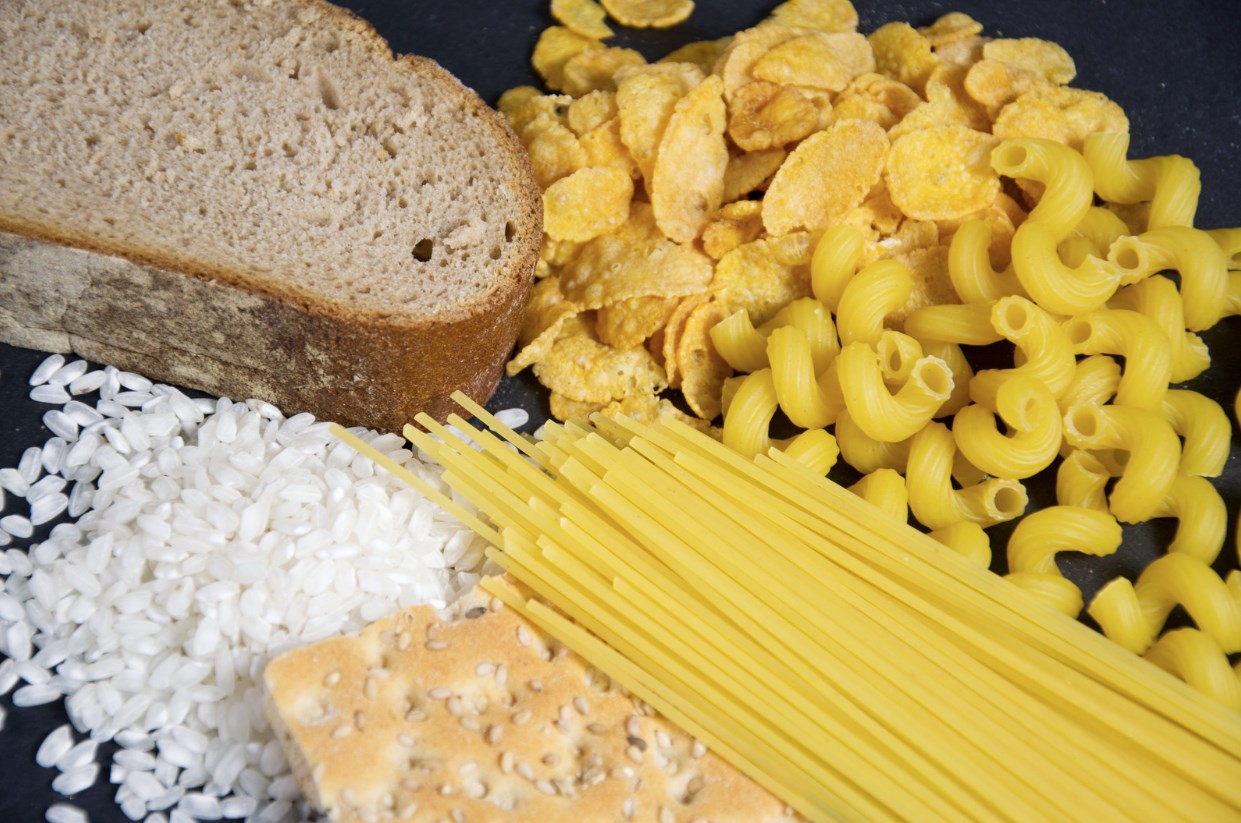
Hydration plays a crucial role in muscle gain and overall health. It's not just about drinking water, but also about how the body uses and stores water. Here's what you need to know:
Hydration and Muscle Tissue: Muscles are about 75% water. Proper hydration helps maintain this balance and supports muscle function. Dehydration can lead to muscle fatigue and weakness, which can hinder your workout performance and muscle growth.
Water as a Nutrient Transporter: Water helps transport nutrients to your cells, including the muscles. This includes proteins and carbohydrates that muscles use for repair and growth after workouts.
Hydration and Metabolism: Staying hydrated can also help with metabolism. Some studies suggest that drinking water can temporarily boost metabolic rate, which could help with weight gain and muscle building.
Water Intake Recommendations: While the exact amount can vary based on individual needs, a general guideline is to drink at least 8 glasses (64 ounces) of water per day. This should be increased if you are engaging in intense workouts.
Signs of Proper Hydration: Your body gives signals to indicate if you're well-hydrated. These include rarely feeling thirsty and having light-colored, plentiful urine.
Hydration and Weight Gain Paradox: Interestingly, a study on neonatal rabbits found that those who gained the most weight retained the least water. This suggests that the relationship between hydration and weight gain might not be straightforward and could depend on various factors, including diet and exercise.
Remember, while hydration is important, it's just one piece of the puzzle. A balanced diet, regular exercise, and adequate rest are also crucial for healthy weight gain and muscle building.
Protein metabolism is a complex process that involves the breakdown and synthesis of proteins within the body.
It's a common belief that if you don't eat protein every few hours, your body will start to break down its muscle tissue for energy.
However, research suggests that this isn't necessarily the case.
The idea that the body breaks down muscle tissue for energy if it doesn't receive regular protein intake is a myth that has been perpetuated for many years.
This belief is based on the assumption that the body is unable to store protein and therefore needs a constant supply to prevent muscle catabolism.
However, this is not entirely accurate.
While it's true that the body doesn't have a dedicated storage system for protein like it does for fats and carbohydrates, this doesn't mean that it will immediately start breaking down muscle tissue if it doesn't receive protein every few hours.
The body has a pool of amino acids that it can draw from when needed, and it can also recycle protein from nonessential bodily processes.
The body is constantly in a state of protein synthesis and breakdown.
When you eat protein, your body breaks it down into its constituent amino acids, which are then used to build new proteins.
This process is known as protein synthesis.
At the same time, the body is also breaking down proteins in a process known as protein degradation.
The balance between protein synthesis and breakdown is what determines whether muscle is gained, lost, or maintained.
If protein synthesis exceeds breakdown, muscle is gained.
If breakdown exceeds synthesis, muscle is lost.
If the two are in balance, muscle mass is maintained.
While regular protein intake is important for maintaining and building muscle mass, it's not necessary to consume protein every few hours to prevent muscle breakdown.
In fact, research has shown that the body can absorb and utilize a significant amount of protein in one meal.
Exercise plays a crucial role in protein metabolism.
Resistance training, in particular, has been shown to increase protein synthesis and decrease protein breakdown, leading to muscle growth.
While regular protein intake is important for muscle health, it's not necessary to consume protein every few hours to prevent muscle breakdown.
The body has mechanisms in place to utilize and recycle protein, and exercise can further enhance these processes.
It's important to consume enough protein overall, but the timing of protein intake may not be as critical as once thought.
While the idea of fasting might bring to mind images of muscle wasting, the reality is a bit more complex.
A study published in the Journal of Translational Medicine examined the effects of time-restricted feeding (TRF), a form of intermittent fasting, on women with polycystic ovary syndrome (PCOS).
The participants followed an 8-hour eating window (8 am to 4 pm) and found that they were able to reduce body weight, body fat, and insulin resistance without significant changes in lean mass.
This suggests that, at least in the short term, intermittent fasting may not lead to muscle loss, provided that overall caloric and protein intake is sufficient.
Hormones play a key role in how our bodies respond to fasting. When we fast, our bodies release growth hormone, which helps to preserve muscle mass.
At the same time, insulin levels drop, which can help to promote fat burning.
As with muscle growth, when it comes to preventing muscle loss, total caloric intake seems to be key.
If you're consistently eating fewer calories than your body needs, you're likely to lose weight, and some of that weight could come from muscle mass.
However, if you're getting enough calories and protein during your eating window, you should be able to maintain your muscle mass, regardless of whether you're eating those calories in a 4-hour window or spread out over the course of the day.
Fasting, a practice that involves abstaining from food for a certain period, has been linked to various health benefits.
One area of interest is its impact on testosterone levels.
Testosterone, a hormone primarily produced in the testes, plays a crucial role in male health.
It's responsible for the development of male reproductive tissues, the promotion of secondary sexual characteristics, and the overall well-being of men.
A study conducted by the University of Virginia School of Medicine found that short-term fasting, specifically a 24-hour fast, can lead to a significant increase in testosterone levels.
This increase was observed in both the morning and afternoon measurements, suggesting that the timing of the fast may not necessarily impact the testosterone-boosting benefits of fasting.
However, it's important to note that this was a small-scale study, and more research is needed to fully understand the relationship between fasting and testosterone levels.
It's also worth mentioning that while short-term fasting may boost testosterone levels, long-term or chronic fasting could potentially have the opposite effect.
This is because prolonged fasting can lead to a state of negative energy balance, where the body burns more calories than it consumes.
In this state, the body may start to conserve energy by reducing the production of certain hormones, including testosterone.
So, while fasting can potentially boost testosterone levels in the short term, it's important to approach this practice with caution and always listen to your body's signals. [Reference]
When it comes to optimizing testosterone levels through diet, there are several factors to consider.
Firstly, maintaining a balanced diet is key.
This means consuming a variety of foods to ensure you're getting a wide range of nutrients.
It's also important to avoid overeating, as excessive caloric intake can lead to weight gain and obesity, which are linked to lower testosterone levels.
Secondly, certain nutrients can particularly support testosterone production.
These include zinc, vitamin D, and healthy fats.
Zinc is a mineral that plays a crucial role in hormone production, including testosterone.
Vitamin D, on the other hand, has been shown to increase testosterone levels in some studies.
Healthy fats, such as those found in avocados, nuts, and olive oil, are also beneficial for testosterone production.
Thirdly, it's important to limit the intake of processed foods and alcohol.
These can negatively impact testosterone levels and overall health.
Lastly, a study published in the Journal of Cellular and Molecular Medicine suggested that a high-cholesterol diet could negatively impact testosterone production.
The study found that rats fed a high-cholesterol diet had decreased testosterone levels.
However, when these rats were treated with 4-PBA, a chemical that improves protein-folding capacity and stabilizes protein conformation, their testosterone levels increased to normal levels.
This suggests that a diet high in cholesterol could potentially disrupt testosterone production, and interventions that alleviate cholesterol-induced stress could help maintain normal testosterone levels. [Reference]
The question of how much protein the body can utilize in a single meal for muscle-building has been a topic of debate among researchers and fitness enthusiasts alike.
A study by Schoenfeld and Aragon (2018) provides some insight into this matter.
The controversy revolves around the maximum amount of protein that can be utilized for lean tissue-building purposes in a single meal for those involved in regimented resistance training.
It has been proposed that muscle protein synthesis is maximized in young adults with an intake of approximately 20-25 g of high-quality protein.
Any protein intake above this amount is believed to be oxidized for energy or transaminated to form urea and other organic acids.
The speed of protein digestion also plays a role in muscle anabolism.
Fast-digesting proteins, such as whey, can spike muscle protein synthesis (MPS), but may also lead to greater amino acid oxidation, potentially lowering the net protein balance.
On the other hand, slower-digesting proteins, such as casein, may help attenuate oxidation of amino acids and promote a greater whole-body net positive protein balance.
Based on the current evidence, Schoenfeld and Aragon (2018) conclude that to maximize anabolism, one should consume protein at a target intake of 0.4 g/kg/meal across a minimum of four meals in order to reach a minimum of 1.6 g/kg/day.
Using the upper daily intake of 2.2 g/kg/day reported in the literature spread out over the same four meals would necessitate a maximum of 0.55 g/kg/meal.
While the focus is often on per-meal protein intake, the total daily protein intake also plays a crucial role in muscle building. A study by Kim et al. found that a higher protein intake promoted a significantly greater whole-body anabolic response, primarily attributed to a greater attenuation of protein breakdown.
In conclusion, while there is a limit to how much protein can be utilized in a single meal for muscle building, the optimal protein intake may vary depending on several factors including the type of protein consumed, the individual's body weight, and their overall dietary intake.
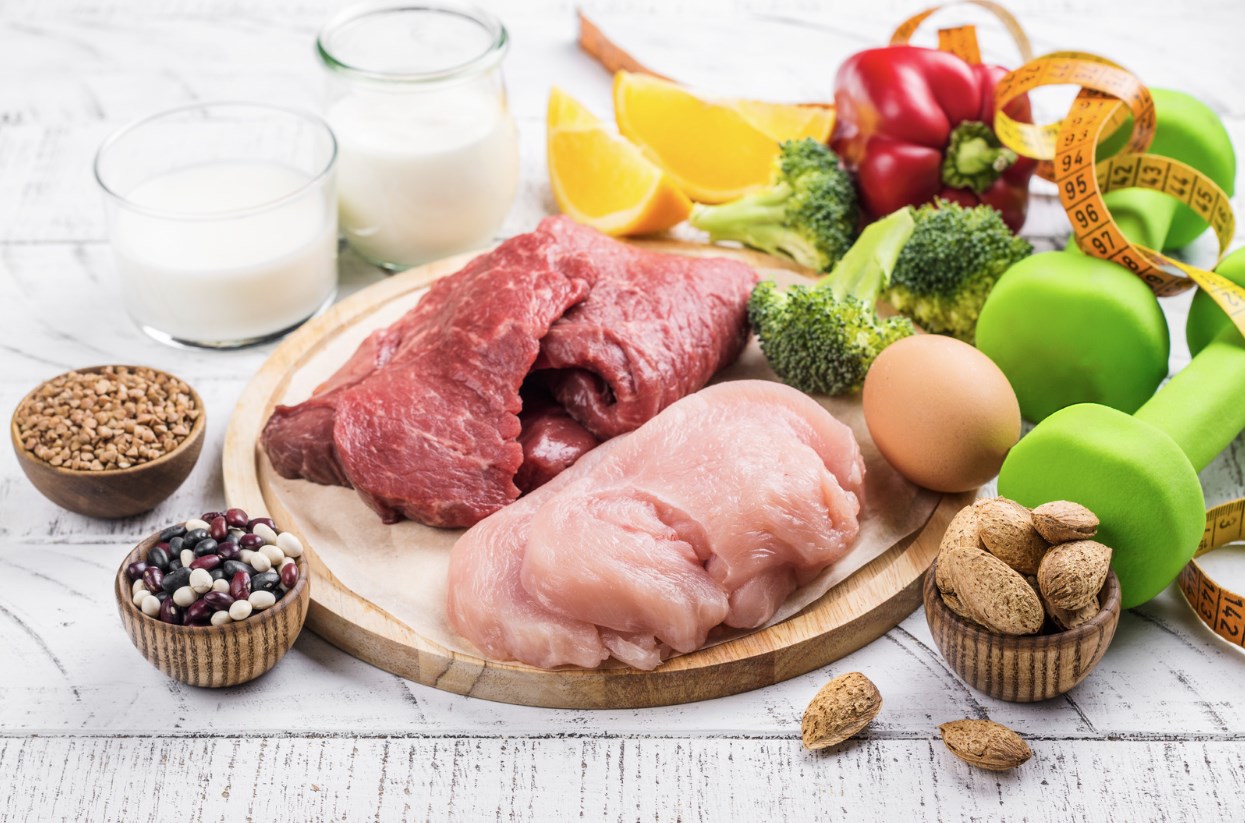
Regarding weight loss and overall health, there's no shortage of diet plans.
You've probably heard of a few and maybe even tried one or two.
But how do they compare to each other?
And more importantly, how do they stack up against eating a balanced diet of foods you enjoy?
Let's dive in and take a closer look.
Low-carb diets like Atkins and South Beach limit your intake of carbohydrates while allowing you to eat more fats and proteins.
The idea is that reducing carbs forces your body to burn fat for energy.
But is it sustainable?
It can be tough to stick to over time, especially if you love bread, pasta, and other carb-heavy foods.
And while some people have seen success with low-carb diets, they can also lead to nutritional deficiencies if you're not careful.
High protein diets like Dukan and Paleo emphasize lean meats and dairy, while cutting out carbs.
Like low carb diets, they can help you lose weight by making you feel full and satisfied.
But again, they can be hard to stick to over time and lead to nutritional deficiencies.
The Ornish diet is a low fat diet that limits total fat intake and cuts out most animal products.
It's nutritionally balanced but can be hard to stick to over time, especially if you enjoy fatty foods like avocados, nuts, and oils.
Meal replacement diets like Jenny Craig and SlimFast involve replacing one or two meals daily with specially designed shakes or bars.
They can be effective for weight loss, but they can also be expensive.
And let's face it, drinking a shake isn't as satisfying as eating a meal.
Balanced diets like DASH, Mediterranean, and Weight Watchers don't cut out major food groups.
Instead, they focus on eating various foods from all the major food groups, including vegetables, fruits, whole grains, lean proteins, and healthy fats.
These diets are flexible, nutritionally balanced, and sustainable for the long term.
A lot of scientific research also backs them.
Low-carbohydrate, high-fat (LCHF) diets have been promoted for weight loss and diabetes management
These diets typically have a carbohydrate content of less than 50g per day, which is significantly lower than the average carbohydrate intake in a standard diet.
The reduction in carbohydrates is usually accompanied by an increase in fat and, to a lesser extent, protein.
Several observations have been made regarding the outcomes of LCHF diets:
A non-ketogenic diet supplying 100-150g carbohydrate/day, under good control, may be more practical.
However, the long-term effects of such drastic diet changes remain unknown.
Historically, there have been various diets that center on a low-carbohydrate content, such as the Atkins Diet, the Zone Diet, the South Beach Diet, and the ketogenic diet.
However, it should be pointed out that although many studies refer explicitly to "diets with a low-carbohydrate content", this in fact goes hand in hand with "elevated fat".
This well-known "seesaw effect" is present in many nutritional intervention studies in which a decrease of one particular component always is accompanied by a parallel increase in another component.
The Paleo diet, often cited as a model for low-carbohydrate diets, contained roughly as much fat as our modern Western diet.
Observations made in the so-called "blue zones", e.g., Sardinia, Okinawa (Japan), Loma-Linda (California), are intriguing, given their commonality is the relatively high-carbohydrate and low-saturated fat content of their daily diet, which allow them to stay healthy until very high age.
Two processes come into play when glucose availability declines: gluconeogenesis and ketogenesis.
Gluconeogenesis is the endogenous production of glucose, while ketogenesis is the production of ketone bodies as an alternative to glucose when the body's glucose needs cannot be met.
This is led to believe it helps burn more fat due to the low carb, high fat macros.
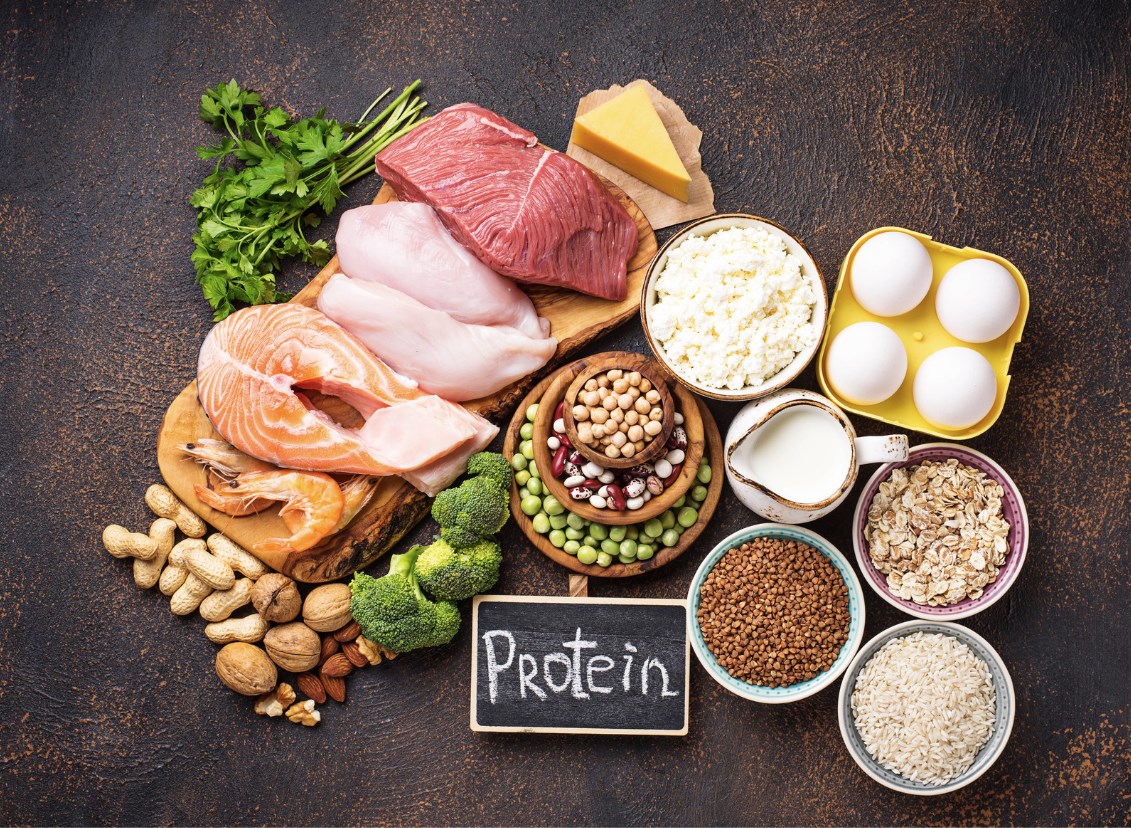
Well, it depends on you.
Different diets work for different people, and what works best for you might not work as well for someone else.
But if you're looking for a diet that's flexible, nutritionally balanced, and sustainable for the long term, a balanced diet like DASH, Mediterranean, or Weight Watchers might be your best bet.
At the end of the day, the best diet is the one you can stick to.
And remember, it's not just about losing weight.
It's about making healthy lifestyle changes that you can maintain for the rest of your life.
So, don't be too hard on yourself.
Take it one step at a time, and remember to enjoy the journey.
After all, food is one of life's greatest pleasures!
Of course, no muscle gain plan would be complete without a solid training program.
While nutrition provides the building blocks for muscle, it's the physical stress from resistance training that signals your body to build more muscle.
A good training program for skinny guys should focus on compound exercises - movements that work multiple muscle groups at once.
These exercises, such as squats, deadlifts, and bench presses, allow you to lift heavier weights and stimulate more muscle growth.
Remember, consistency is key. Aim to hit the gym at least 3-4 times a week, and make sure to progressively increase the weights you're lifting as you get stronger.
For more details on effective training programs, check out our ultimate guide to training programs.
Alright, let's talk about fitness influencers and steroids.
You know the ones I'm talking about.
Those super ripped guys and gals on Instagram, flexing in the mirror and showing off their six-pack abs.
They make it look so easy, right?
Just follow their workout routine, eat what they eat, and boom - you'll look just like them. But here's the thing, it's not always that simple.
First off, we gotta remember that what we see on social media isn't always the whole truth.
These influencers, they're showing us their best angles, using all sorts of filters, and sometimes even getting professional photos taken.
It's all about creating that perfect image. But let's be real, nobody's perfect.
One study, "Recommending Physical Activity During the COVID-19 Health Crisis. Fitness Influencers on Instagram", basically says that a lot of these influencers aren't even professional fitness trainers.
They're more about showing off their bodies than actually teaching us anything useful.
That's not cool, and it can lead to us getting the wrong idea about fitness and health.
And then there's the whole steroid thing.
Yeah, some of these influencers are using steroids to get those crazy muscles.
Steroids can make you bulk up and cut fat like crazy, but they can also mess you up big time. We're talking heart disease, liver damage, and even mental health problems.
Not exactly the picture of health, right?
The most important thing to remember is that you gotta do what's right for you.
Everyone's different, and what works for one person might not work for another. Instead of trying to copy some influencer's routine, find what works for you.
Maybe that means getting a personal trainer or talking to a dietitian. Do what makes you feel good and healthy, not just what makes you look good.
Don't believe everything you see on social media: Remember, it's all about the image. Take it with a grain of salt.
Stop comparing yourself to others: Your journey is your own. Focus on your progress, not someone else's.
Get professional advice if you need it: If you're not sure about something, ask a pro. They can give you advice that's tailored to you.
Listen to your body: If something doesn't feel right, it probably isn't. Don't push yourself too hard and risk getting hurt.
Remember, health isn't just about how you look: It's about how you feel, too. Being healthy means feeling good, having energy, and living a balanced life.
So there you have it.
Fitness influencers can be motivating, sure, but they're not always the best role models.
Remember to take care of yourself, and don't let anyone else make you feel bad about your body. You're doing great, just keep going!

Consistent Training: Stick to a regular workout routine. Aim for at least 3-4 times a week. Consistency is key to seeing progress.
Proper Nutrition: Make sure you're eating enough to support muscle growth. This means consuming a surplus of calories, with a focus on protein, carbohydrates, and healthy fats.
Hydration: Don't forget to drink plenty of water. Hydration is crucial for overall health and aids in muscle recovery.
Rest: Make sure you're getting enough sleep. Your body needs time to recover and build muscle.
Protein Timing: While it's not necessary to consume protein every few hours, ensure you're getting enough protein throughout the day.
Use a Macro Calculator: Use a macro calculator to figure out your daily needs for protein, carbohydrates, and fats.
Understand Your Body Type: Recognize whether you're an ectomorph, mesomorph, or endomorph. This can help tailor your nutrition and workout plan.
Compound Movements: Incorporate compound movements like squats, deadlifts, and bench presses into your workout routine. These exercises work multiple muscle groups at once and are effective for building muscle.
Monitor Your Progress: Keep track of your progress. This can be motivating and help you tweak your plan if necessary.
Ask for Help: Don't be afraid to ask for help or advice. Whether it's from a personal trainer, a nutritionist, or a knowledgeable friend, getting guidance can be very beneficial.
What's the best diet for a skinny guy to gain muscle? A balanced diet rich in protein, carbohydrates, and healthy fats is ideal for a skinny guy looking to gain muscle. Regular meals throughout the day, along with pre and post-workout nutrition, can aid in muscle growth and recovery.
How much protein does a skinny guy need to build muscle? According to research, if you're working out regularly, you'll need between 1.2-2.0g of protein per kilogram of your body weight each day. That's more than the 0.8g/kg suggested for those who aren't as active.
Are carbs important for muscle growth? Yes, carbohydrates play a crucial role in providing energy for your workouts and aiding in recovery. They also impact how your body uses nutrients, which can influence muscle growth.
What role do fats play in muscle building? Healthy fats are essential for hormone production, which can aid in muscle growth. They also help your body absorb vitamins.
What are some protein-rich foods that can help in muscle building? Lean meats, fish, eggs, dairy products, and plant-based proteins like tofu and lentils are all great sources of protein.
What are some carbohydrate-rich foods that can fuel my workouts? Whole grains, fruits, and vegetables are excellent sources of carbohydrates.
What are some sources of healthy fats? Avocados, nuts and seeds, olive oil, and fatty fish are all good sources of healthy fats.
Are supplements necessary for muscle building? While not necessary, supplements like whey protein, creatine, and BCAAs can provide additional nutrients that might be hard to get from food alone.
How important is meal timing and frequency for muscle growth? Eating regular meals throughout the day can provide a steady supply of nutrients to your muscles. It's also important to have a pre and post-workout meal to fuel your workouts and aid in recovery.
How does hydration affect muscle building? Hydration plays a crucial role in muscle building. Water helps in the digestion and absorption of nutrients and also helps in maintaining the health and integrity of muscle cells.
Building muscle is a process that requires a combination of regular exercise, proper nutrition, and adequate rest.
By incorporating a variety of protein-rich foods, carbohydrates, healthy fats, and supplements into your diet, you can support your muscle-building efforts and see better results.
Remember, consistency is key. Stick to your nutrition plan, keep up with your workouts, and you'll start to see progress in your muscle-building journey.
Longevity and skeletal muscle mass: the role of IGF signalling, the sirtuins, dietary restriction and protein intake by A. Sharples et al.
Effects of chronic heat exposure and protein intake on growth performance, nitrogen retention and muscle development in broiler chickens by S. Temim et al.
Supplementation of branched-chain amino acids to a reduced-protein diet improves growth performance in piglets: involvement of increased feed intake and direct muscle growth-promoting effect by Liufeng Zheng et al.
The effects of consuming a high protein diet (4.4 g/kg/d) on body composition in resistance-trained individuals by Jose Antonio et al.
Effects of protein supplementation in older adults undergoing resistance training: a systematic review and meta-analysis by Liao CD et al.
Effects of high-protein diets on body weight, glycaemic control, blood lipids and blood pressure in type 2 diabetes: meta-analysis of randomised controlled trials by Santesso N et al.
Effects of intermittent fasting on health, aging, and disease by Rafael de Cabo, Ph.D., and Mark P. Mattson, Ph.D.
Testosterone and cortisol in relationship to dietary nutrients and resistance exercise by Volek JS et al.
Longevity and skeletal muscle mass: the role of IGF signalling, the sirtuins, dietary restriction and protein intake by A. Sharples et al.
Effects of chronic heat exposure and protein intake on growth performance, nitrogen retention and muscle development in broiler chickens by S. Temim et al.
Supplementation of branched-chain amino acids to a reduced-protein diet improves growth performance in piglets: involvement of increased feed intake and direct muscle growth-promoting effect by Liufeng Zheng et al.
The effects of consuming a high protein diet (4.4 g/kg/d) on body composition in resistance-trained individuals by Jose Antonio et al.
Effects of protein supplementation in older adults undergoing resistance training: a systematic review and meta-analysis by Liao CD et al.
Effects of high-protein diets on body weight, glycaemic control, blood lipids and blood pressure in type 2 diabetes: meta-analysis of randomised controlled trials by Santesso N et al.
Effects of intermittent fasting on health, aging, and disease by Rafael de Cabo, Ph.D., and Mark P. Mattson, Ph.D.
Testosterone and cortisol in relationship to dietary nutrients and resistance exercise by Volek JS et al.
Metformin: A Therapeutic Opportunity in Breast Cancer by A. González-Angulo and F. Meric-Bernstam.
Regulation of metabolism by dietary carbohydrates in two lines of rainbow trout divergently selected for muscle fat content by B. Kamalam et al.
Maturation of Cardiac Energy Metabolism During Perinatal Development by J. Piquereau and R. Ventura-clapier.
Metabolism and Fatty Acid Profile in Fat and Lean Rainbow Trout Lines Fed with Vegetable Oil: Effect of Carbohydrates by B. Kamalam et al.
Excess Linoleic Acid Increases Collagen I/III Ratio and “Stiffens” the Heart Muscle Following High Fat Diets by Julianne Beam et al.
Effects of dietary methionine on breast muscle growth, myogenic gene expression and IGF-I signaling in fast- and slow-growing broilers by C. Wen et al.
Potential involvement of dietary advanced glycation end products in impairment of skeletal muscle growth and muscle contractile function in mice by T. Egawa et al.
Useful Links
 About FitFrek
About FitFrekFitFrek operates as an independent platform, offering comprehensive workouts, programs, routines, guides, and unbiased reviews to accelerate your progress. We pride ourselves on our honesty, delivering straightforward and candid insights. FitFrek does not offer medical advice, diagnosis, or treatment services.